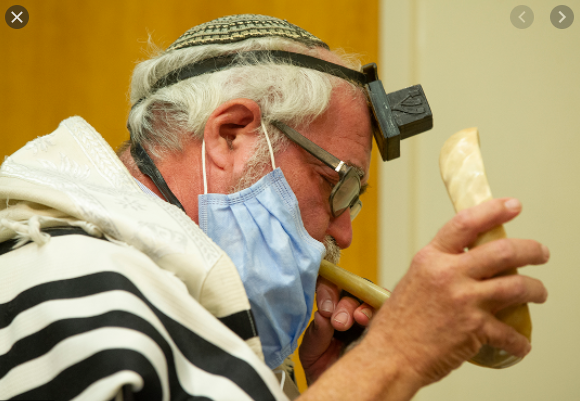This year, it may be a little more difficult to hear the blast.
Some events appear to spread the coronavirus more efficiently than others. Blowing the shofar — without adequate precautions — may be one of them.
Drs. Adam Schwalje and Henry T. Hoffman, both professional otolaryngologists at the University of Iowa and amateur bassoon players, said that playing a musical instrument, even a shofar, could propel virus-laden droplets into the air. Schwalje told the Times of Israel that the playing or hearing the shofar “may pose an infection risk.”
The doctors told a conference at the University of Iowa School of Music that at one choir performance in Amsterdam earlier this year, 102 of the 130 singers came down with coronavirus infections. Experts say that shouting, or singing, or even talking loudly in a room, propels droplets into the air causing others to breathe in the virus and develop their own infections. Scientists suspect that aerosols from breath, even smaller than droplets, travel farther and stay airborne longer and can convey the virus in poorly ventilated spaces as well.
Schwalje said sounding the shofar out-of-doors would mitigate the risk, as would standing at a distance from listeners, and pointing the wide end away from them.
Cyrille Cohen, head of the immunotherapy laboratory at Bar-Ilan University in Israel and a veteran shofar-blower, additionally recommends attaching a face mask to the wide end of the shofar.
For article, click below:


